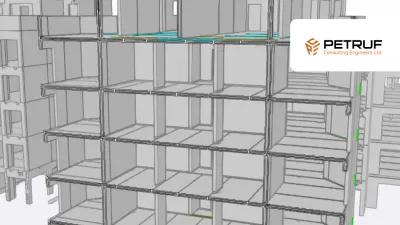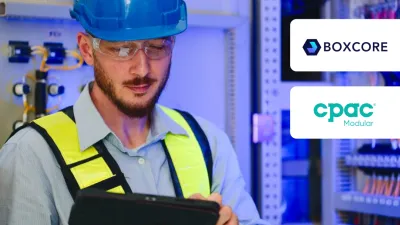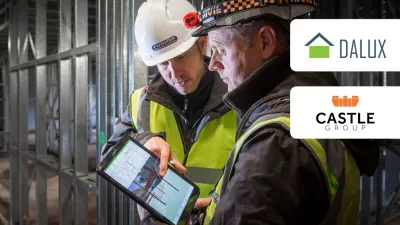ICF Innovation: Amvic Delivers High Performance Homes with Less Labour and More Value
Amvic Ireland is the largest manufacturer of Insulated Concrete Form (ICF) in the country. Its success has been driven by the growing demand for a high-quality, lightweight solution that delivers strong thermal performance at an affordable cost. But what makes this MMC material stand out in modern construction?
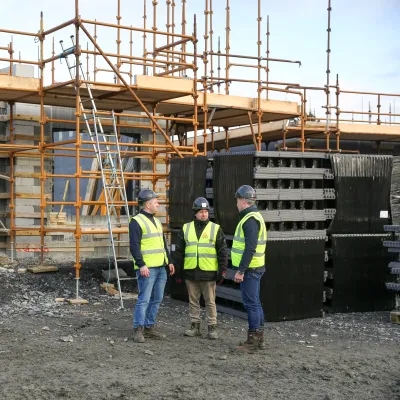
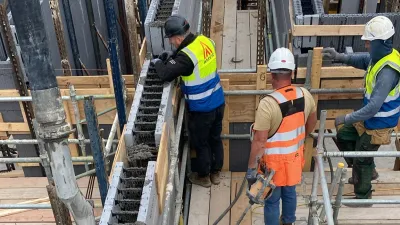
Block laying was, traditionally, one of the most demanding jobs in the world of construction. The exertion and physical toll of loading and placing blocks, even with the assistance of machinery, meant many builders did not have the opportunity to remain in the building industry for their entire working life.
ICF has transformed this reality. ICFs are hollow blocks, often made from reinforced expanded polystyrene, which are stacked and interconnected onsite, and then filled with concrete. With ICF, builders retain the structural integrity of concrete while the polystyrene frame improves each block’s thermal insulation qualities – and each block is significantly lighter. This translates to lower transport and assembly time and costs. It means less wear and tear on workers, so they can stay in their roles for longer. Enhanced thermal insulation also ensures Irish housing meets energy efficiency standards.
Although ICF was invented in the late 1960s, it has not been widely used in Irish construction due to an initial lack of awareness and building code restrictions. But Andrew Butler, Senior Technical Manager for Amvic, says this is now changing.
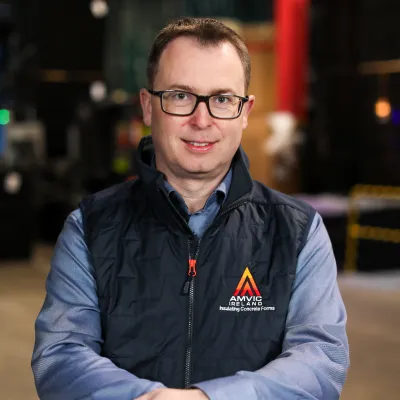
“Five years ago, ICF accounted for 3% of new builds in Ireland. Now, it’s closer to 20%. We are growing with that demand as the largest ICF manufacturer in the country, and we want to educate more contractors about MMC.”
Senior Technical Manager, Amvic
To fuel this growth, Amvic has invested heavily in its off-site manufacturing centres in Dublin and Co. Longford, with the two facilities able to produce 520,000+ square metres of ICF annually. The Amvic product is handled by 60 different registered installers, from various trade and general construction backgrounds. What unites all these people? Working for a modern construction company producing sustainable building materials offering career longevity and the opportunity to learn new skills in MMC.
Each Amvic installer goes through an internal training programme combining both technical training on product specifications and onsite training in ICF installation. Andrew and Amvic’s Commercial Director, George Richardson, run this training alongside Senior Project Manager, Eugene Byrne. Eugene is responsible for assessing installation quality and finishing onsite, tied into Amvic’s on-the-job training.
Eugene brings experience of 20 years in the construction industry to his day-to-day role, and firmly believes in the power of onsite training as the mot impactful way of learning.
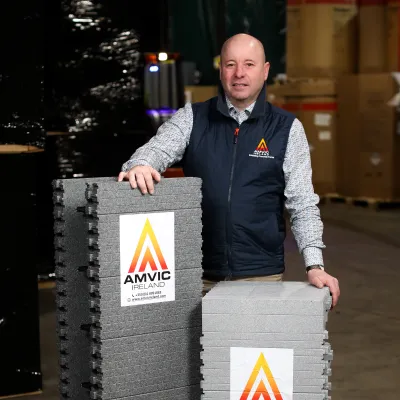
“You need to get out with the troops to truly learn. That’s how I learnt when I started with Amvic. Even with all my expertise in the construction sector, I still was out onsite on my first day to learn about Amvic in a practical way.”
Senior Project Manager, Amvic
This informs how Eugene upskills contractors interested in using Amvic’s ICF solutions. Training starts with a review of data sheets and technical details. However, learning quickly moves onsite where contractors can see first-hand the high standards for installing the ICF products. After, contractors are given the chance to work on small-scale developments, which Eugene says helps to ensure contractors are committed to the quality installation of Amvic’s highly technical product. Some clients may require further upskilling in software such as Procore, which again determines tier-one client needs.
“Training is an investment. While not all builders embrace the opportunity to upskill, the wins from upskilling programmes more than pay for any losses. All the top tier contractors engage in continuing professional development.”
Senior Project Manager, Amvic
A prime example of Amvic ICF in action is the company’s recent project in Enniskerry. Amvic were engaged to provide ICF for five one-off houses in a small development. With only a six-week lead inn, Amvic created the order and worked with another contractor to start laying foundations just after St Patrick’s weekend. Within 10 weeks, the client received five houses ready for installation and for internal and external finishing works.
This significant speed was made possible because of the efficiency of transporting and installing ICF and the thorough upskilling received by Amvic’s registered installers. The houses also offered U-values (how effectively a material transfers heat) as low as 0.148 W/m²K, far exceeding what is possible when building using traditional techniques.
 Fox Meadows project in Co. Kilkenny
Fox Meadows project in Co. Kilkenny
It speaks volumes of the importance of investing in upskilling construction professionals in the latest advances in MMC, a point that Andrew corroborated.
“[To embrace MMC], we need to combine site-based learning and a whole library of different training operations. We also need to interface directly with our end user. Educational institutions are reacting well to develop the right upskilling opportunities. Builders and contractors just need to engage with it.”
Senior Project Manager, Amvic
